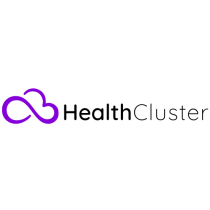
The South African medical sector is shifting fast toward digital systems. Clinics are under pressure to comply with POPIA, improve patient flow, reduce billing errors, and cut administrative time. This guide gives a complete breakdown of medical software used across South Africa, its features, compliance requirements, pricing logic, and how clinics should evaluate the right system.
The Digital Shift in South Africa’s Healthcare Sector
Medical software in South Africa is no longer optional. Clinics, practices, and hospitals face rising operational demands:
- Higher patient volume
- More compliance checks
- Complex billing and ICD-10 coding
- Increased POPIA scrutiny
- Demand for faster appointment management
- Pressure to reduce admin staff costs
Digital systems solve these problems by centralizing patient records, billing, scheduling, and reporting inside a single integrated platform.
Most clinics now adopt an all-in-one system instead of running multiple disconnected tools. The reason is simple: fragmentation increases mistakes, slows down workflow, and creates compliance risks.
2. What Medical Software Covers in South Africa
The term “medical software” covers several systems. Most clinics need a combination of these:
2.1 Electronic Medical Records (EMR / EHR)
Tracks clinical data such as:
- Patient history
- Diagnoses
- Prescriptions
- Treatment plans
- Lab results
- Imaging reports
An EHR ensures accurate, accessible patient information and reduces paperwork.
2.2 Medical Practice Software (Admin & Operational Modules)
medical practice software south africa
This software handles the operations of a clinic:
- Appointment scheduling
- Patient registration
- Staff management
- Visit tracking
- Follow-ups and reminders
- File management
- POPIA-compliant data handling
Most clinics use this as the base system.
2.3 Medical Billing Software
medical billing software south africa
Billing and financial administration are the biggest sources of errors in clinics. Proper billing software provides:
- ICD-10 coding automation
- Claims submission
- Payment posting
- Reconciliation
- Error reduction
- Debtor management
- Reporting and revenue forecasting
South Africa’s insurance-driven ecosystem makes accurate billing essential.
2.4 Practice Management Software (Full Suite)
medical practice management software south africa
This combines:
- EMR
- Billing
- Scheduling
- Reporting
- Analytics
- Patient engagement tools
It’s used by clinics that want a single platform instead of multiple disconnected systems.
3. Why South African Clinics Are Adopting Medical Software
3.1 POPIA Compliance
Paper files, WhatsApp-based communication, and outdated systems expose clinics to POPIA violations. Medical software enforces:
- Secure digital records
- Controlled access (role-based)
- Encrypted data storage
- Audit trails
- Safe communication channels
Clinics using outdated systems are at risk — both legally and operationally.
3.2 Financial Control
South African clinics lose revenue through:
- Manual errors
- Untracked claims
- Late submissions
- Wrong ICD-10 codes
- No reconciliation reports
Billing software solves this completely.
3.3 Patient Experience
Patients expect:
- Online booking
- Digital records
- Quick payments
- SMS reminders
- Prescription history
Without software, a clinic can’t meet modern expectations.
3.4 Operational Efficiency
Admin staff waste time on:
- Data entry
- Searching files
- Confirming appointments manually
- Chasing invoices
- Compiling monthly reports
Software reduces labour dependency and speeds up workflow.
4. Core Features South African Clinics Need (2025)
Here are the features that matter — not the generic marketing list you see everywhere.
4.1 Reliable Scheduling System
Must allow:
- Multi-branch scheduling
- Specialist-based calendar views
- SMS reminders
- No-show tracking
- Telehealth appointments
Weak scheduling causes most patient bottlenecks.
4.2 Integrated Billing Workflow
Critical components:
- ICD-10 validation
- Claim status tracking
- Auto-reconciliation
- Cashflow reporting
- Invoice templates
- Error alerts
Without billing integration, revenue leakage becomes unavoidable.
4.3 EMR That Actually Helps the Doctor
Doctors need:
- Smart templates
- Easy note-taking
- Quick access to history
- Medication suggestions
- Integrated lab reports
- ePrescriptions
If EMR slows down consultation speed, it is the wrong system.
4.4 POPIA Security Framework
Must include:
- Role-based access
- Encrypted data
- Audit logs
- Controlled file sharing
- Secure cloud storage
- Two-factor authentication
Security is not optional — it’s required.
4.5 Reporting & Analytics
A clinic needs clarity on:
- Revenue
- Claims acceptance
- Patient load
- Staff performance
- Inventory
- Referrals and KPIs
Management decisions should come from data, not guesswork.
5. Compliance Considerations for South African Medical Software
You must check for compliance with:
5.1 POPIA (Protection of Personal Information Act)
This controls:
- Data collection
- Data storage
- Access permissions
- Cloud security
- Patient consent
- Audit trails
Any software that cannot show POPIA security documentation is a liability.
5.2 HPCSA Guidelines
Especially for:
- Telemedicine
- Record-keeping
- Confidentiality
- Prescription protocols
Software used during video consultations must follow HPCSA rules.
5.3 ICD-10 Standards
Billing accuracy depends on correct ICD-10 mapping.
Your software must include:
- Code suggestions
- Error detection
- Updated code lists
Wrong codes = rejected claims.
6. Pricing Models of Medical Software in South Africa
Expect one of three models:
6.1 Subscription per User
- Common for general practitioners and small clinics
- Monthly fee per doctor or admin
- Predictable and scalable
6.2 Module-Based Pricing
- Used by multi-specialty practices
- Pay for: EMR + Billing + Management + LIS, etc.
- Flexible but can become expensive if poorly planned
6.3 Enterprise Deals (Hospitals / Groups)
- Custom pricing
- High-level reporting
- Integrations with external systems
Important:
Cheapest solutions almost always lack billing accuracy or POPIA compliance — the two areas that cost clinics the most when things go wrong.
7. How to Choose the Right Medical Software
Straightforward criteria that actually matter:
7.1 Does it handle the entire clinic workflow?
If you rely on multiple systems, expect:
- Data duplication
- Errors
- Time loss
- Compliance gaps
All-in-one systems reduce risk.
7.2 Is billing integrated and accurate?
If billing is poor, your cashflow collapses.
Look for:
- ICD-10 automation
- Rejection alerts
- Claim status tracking
- Reconciliation previews
7.3 Does it support telehealth?
Many specialists operate hybrid models.
Telehealth must be:
- Secure
- POPIA compliant
- Integrated with EMR and billing
7.4 Does it offer real customer support?
South African clinics face:
- High patient loads
- Frequent billing errors
- Complex insurance claims
You need local support, not overseas call centres.
7.5 Can it scale?
You should be able to add:
- New rooms
- New specialists
- New branches
- Additional services
If the system breaks as you grow, avoid it.
8. Software Comparison Table (Realistic Evaluation)
| Feature | EMR | Practice Software | Billing Software | Practice Management |
|---|---|---|---|---|
| Patient Records | ✔ | ✔ | ✖ | ✔ |
| Scheduling | ✖ | ✔ | ✖ | ✔ |
| Billing | ✖ | ✖ | ✔ | ✔ |
| POPIA Tools | ✔ | ✔ | ✔ | ✔ |
| Reporting | Basic | Moderate | Strong | Strong |
| Best For | Doctors | Admin teams | Finance teams | Full clinic |
This is how the systems fit logically into a clinic — not the marketing version.
9. Why Choose a Unified Medical Software System
Most clinics that migrate to one unified system report:
9.1 Lower admin workload
Up to 40–60% reduction in manual entries.
9.2 Higher claim acceptance rates
Accuracy reduces rejections dramatically.
9.3 Improved patient experience
Shorter wait times, faster communication.
9.4 Better management decisions
Data becomes visible and measurable.
9.5 Compliance certainty
Avoid POPIA violations and legal risk.
10. FAQ
Q1: What is the best medical software in South Africa?
The best solution depends on clinic size.
Small clinics: Focus on EMR + billing integration.
Large practices: Use full practice management suites.
Q2: Is cloud-based medical software safe under POPIA?
Yes — as long as data stays encrypted, controlled, and audit-logged.
Q3: How much does medical software cost in South Africa?
Most clinics pay between R600 – R3,000 per month per user, depending on modules.
Q4: What if my clinic has multiple branches?
You need a system with multi-branch scheduling, central billing, and unified reporting.
Q5: Do I need both EMR and medical billing software?
If you want accuracy and cashflow stability, yes.
If you choose an all-in-one system, both come included.
Conclusion
The demand for medical software in South Africa is rising fast due to regulatory pressure, financial challenges, and patient expectations. Clinics no longer have room for manual systems or fragmented tools. A strong solution must combine POPIA-compliant patient records, accurate billing, efficient scheduling, reporting, and practice management — all inside one reliable platform.


